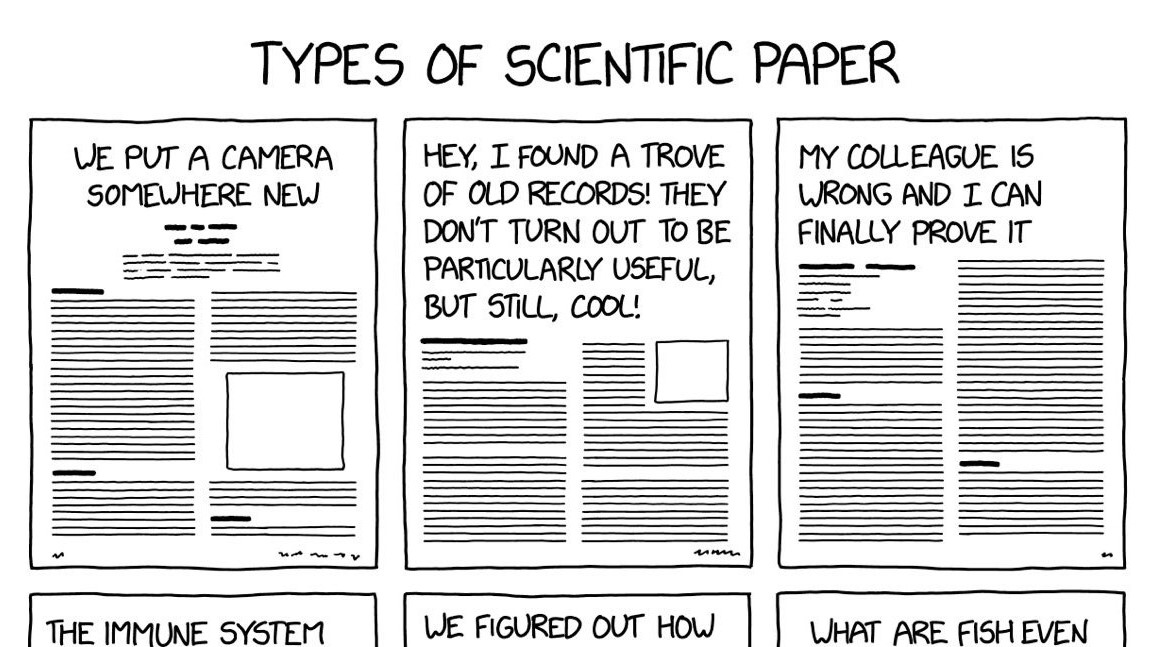To receive a free full-text email of The Zeitgeist whenever we publish to the website, please sign up here. You’ll get two or three of these emails every week, and your email will not be shared with anyone. Ever.

A few weeks ago, we published a Zeitgeist called Never Forget about the protests and the narratives being promoted about them. It was a little brief that Ben ended with this flourish:
This isn’t a threat to democracy. This IS democracy.
Never forget.
Never Forget
We got a lot of comments and emails about this one.
Most were supportive. Still, there were enough that fell into two less-than-supportive camps to make us feel they were worthy of mention. The first, if I can paraphrase, wondered why Ben couldn’t see how important it was that so many of the protests really were devolving into riots. The second posited that Ben simply didn’t want to see that so many of the protests were really being stoked and inflamed by outside elements intent on creating division and unrest. If you didn’t see these responses in the wild, simply recreate them by shouting in your shrillest voice, “Haven’t you read about the pre-arranged bricks?” and then collapse in a heap onto the nearest available chaise lounge.
Pearls optional.
We have written before about the peculiar Prussianness of certain American institutions, but not so much about our pronounced shared preference for order even at the cost of injustice. But goodness gracious, people. I feel slightly worse about calling Goethe Prussian than about using one of his quotations cynically (especially since I know the idea is more about the rule of law than order per se), but sometimes the shoe fits:
My good friend Gore would not yet understand how I could have risked so much for the sake of an unknown and perhaps criminal person. I pointed always, jestingly, to the clean space before the house, and said at last, rather impatiently: “The fact is, it is part of my nature; I would rather commit an injustice than suffer disorder.”
J.W. Goethe, Campagne in Frankreich 1792
It is one of the most inconvenient things about the practice of free speech: if it matters, it is messy.
Of course some of the protests turned into nighttime scenes of wanton, arbitrary destruction of property. Of course there were people and organizations who desired, provided for and stoked those activities, who had designs on steering the protests in anti-social, division-focused directions. Of course there are integrated subcultures of the usual professional anti-capitalism, anti-everything activists in a huge swath of the protest events. None of that should surprise anyone. If it did, that’s on you. What is – at least to me – more surprising is how many people are equally willing to buy into the counternarrative that this kind of roughness, artificiality and attempts at co-option which inevitably follow genuine expressions of the speech of a free people, invalidate or lessen the value of those expressions.
Fortunately for proponents of truly free expression, the world as-it-is doesn’t care about our pearl-clutching. Because the other inconvenient thing about the practice of free speech – at least for those who would stifle it with half-hearted No True Scotsman gatekeeping – is that it is contagious.
First, go read the letter now-former New York Times columnist Bari Weiss posted on her personal website today. It is a resignation letter. And yes, it has the usual exhausting “I’m not a lawyer, but this sure seems like constructive discharge” stuff. But the rest of this thing is marvelous, must-read material about resisting the overwhelming power of Narrative on ideas and thought.
Resignation Letter – Bari Weiss
Next, go read the letter published by Harper’s – Harper’s! – that was written and co-signed last week by a list of academics, authors and other thinkers entitled “A Letter on Justice and Open Debate.”
A Letter on Justice and Open Debate
A letter co-signed by Nicholas Christakis, Jonathan Haidt, Noam Chomsky, Garry Kasparov and Gloria Steinem is one we should read. Not because they are Important People and we should give two shits what they have to say more than anyone else who has the right of an issue. But because this is probably the most ecumenical expression of commitment to freedom of expression, repudiation of culture-porn and commitment to empowering risk-taking in culture-world that has come out of the left and center-left in most of our lifetimes.
This stifling atmosphere will ultimately harm the most vital causes of our time. The restriction of debate, whether by a repressive government or an intolerant society, invariably hurts those who lack power and makes everyone less capable of democratic participation. The way to defeat bad ideas is by exposure, argument, and persuasion, not by trying to silence or wish them away. We refuse any false choice between justice and freedom, which cannot exist without each other. As writers we need a culture that leaves us room for experimentation, risk taking, and even mistakes. We need to preserve the possibility of good-faith disagreement without dire professional consequences. If we won’t defend the very thing on which our work depends, we shouldn’t expect the public or the state to defend it for us.
A Letter on Justice and Open Debate (Harpers, July 7, 2020)
Y’all, if you had a Chomsky and Steinem parlay in your “Who will argue most vociferously for widening the Overton Window in 2020?” pool, you are now officially the richest person in America.
With all that said, there’s no need to be pollyannaish about where we are at on this – looking at you, social media giants – but if a commitment to free expression is the next contagion to catch from the bottom up, we are here for it.




It’s a great thing to be able to agree to be able to disagree, especially in a public forum.
A great and indispensable thing!
My Republican friends have been sending me examples of censorship of right-leaning speakers for (it seems) about a decade with a noticeable increase in the past five years.
When I told my Democratic friends about this, they’d tell me I watch to much FOX News (I’ll take the under on an hour in total in the last decade that I’ve watched FOX). But now that - as the cliche, but seemingly true expression in this case, goes - “they are coming for you” (not far-left liberals), some Democrats are taking notice.
I lean libertarian and use to overlapped with 50% of the old Republican Party and 25% of the old Democratic Party, but overlap with very little of either today. So take my comments in that light if you wish.
I hate the far right’s ideology and the far left’s (they seem to meet in odd ways that neither side wants to admit). But I have no desire to silence any of them. I hope these two examples of yours Rusty are the beginning of a push back against the censorship and “cancel” culture that seems to be gaining strength at a frightening pace.
I’d love my ideas to become the dominant ideas of our culture (fat chance), but the only way I want that to happen is by winning in a fair fight in the marketplace for ideas, opinions, thoughts and speeches.
There is an intersection between trust and safe expression of dissenting views (I believe one of you has written a note on this - “the pack is the place where you can disagree and not get in trouble”).
There is a weird self-fulfilling prophecy in the social media marketplace of ideas where assertions of deep division make it so.
Goya-boycott matters more to the right than the left - Lin-Manuel Miranda is uncancelable by the far left but outrage generated by the proposal gets traction.
Annoying personal story (no, it’s not a criticism or endorsement of gender-politics):
I remember several years ago, I had to take a minimum-wage job at Starbucks (I, naively I suppose, did not realize the “liberal reputation” the company had) and many of my coworkers were gay, bisexual, or transgendered. One person, who was asexual and didn’t identify as any gender, gave themselves a name they preferred to be called that was not their birth (female) name. I enjoyed being around this person but did not even realize they considered themselves gender-less (I guess I lacked some awareness), and, when I discovered their real name, jokingly called them by it in a teasing, non-malicious way. This embarrassed and offended them, but they took the time to explain to me their feelings, etc. The point is (finally), I committed the ultimate, cancel-worthy faux pas - but I did it from a place of ignorance and non-malicious intent with someone who I liked and trusted, and vice versa.
All of this to say: the broad lack of trust online and in the media, the suspicion that everyone is using each idea and policy as a weapon for tribal-signaling or as a bid toward winning back or maintaining their position on the political throne, creates an unbearable separation between our digital interactions and our personal ones. I think the massively-social-online-discourse generates its own outrage and own cancel-culture that is entirely overblown when compared to our more humane interactions in real life. That is, cancel culture is both real and not real…
As always here, more “thoughts” than critique or agreement, per se.
I think it depends pretty heavily on what your social circle is, although I think that it is generally true that social media permits the meta-game playing that makes so many assumptions and imputes so many opinions/views/intents before anyone has even opened their mouths. In short, yeah, certainly people are more like people when you talk to them in person. They are forced to grapple with your humanity in ways that an avatar doesn’t compel.
Still, if you are associated with a university faculty, for example, parts of this are your everyday. If you work in the arts (most of them, anyway), parts of this are your everyday. If you’re working construction in, say, Texas or other parts of the south, parts of this are your everyday. I used to think that social media was this otherworld, a place that had no relevance to the real, that we shouldn’t draw conclusions from it. I don’t think that any more. The bleedover has become real, in part because social media constitutes so much higher of a percentage of the human exposure that most people have (especially in quarantine!) and in part because our human conversations are beginning to skew the direction of the ones we have on social media.
In the last two weeks I saw a letter a major university sent out to students from the last several years literally asking them to name-and-shame anyone they can remember who they might have seen say or do something inappropriate. Real world cancel culture may be exaggerated in some circles, but it is unequivocally real. It is stifling and dark.
You’re right in saying the pack is a place we can build where it is safe to take risk and disagree - but I think it is also a sad creation of necessity in comparison to a nation or world where that could be true. Anything that expands our collective ability at the level of broader society to speak without fear of permanent reprisals is a good thing in my book.
Thanks for the note, Mark!
I think that the reality is that cancel culture WAS for the last couple decades (and to some extent, probably still IS) a disproportionately left-leaning phenomenon. It’s obviously not because there’s some embedded animus in that part of society any more than another, but because the avenue that the American progressive movement chose to consolidate its power was through cultural institutions like media, entertainment and academia. Power in those channels manifests through control of the missionary messages going out, which means that you consolidate power by ruthlessly cutting off anything that is off-narrative.
The right always had cancel cultures of its own through religious institutions, but it has been catching up with the left on this dimension in other social and cultural institutions since President Trump’s election in particular. At least in my opinion. Patriotic correctness is real. The “Bill Gates is using COVID-19 to inject nanoparticles in your body to control you” videos on Facebook are real (and batshit crazy).
I view all of this as a symptom of the “Existential Narratives” I wrote about in Even When I Lie. When people are conditioned by narrative to see others (i.e. as in your Fox News example) as “coming for them and their way of life”, then all actions become not only permissible but necessary. Cancellation is just scorched earth doctrine in an existential cultural narrative structure.
I don’t have hope that there will ever be a political party for a rule of law localist who is pro-life, anti-tax, anti-oligopoly, anti-war, anti-police militarization, generally anti-federal regulation and pro-robust, simple social safety net. In the schemes of our political tribes I’m a centrist in the way that the average of -100 and +100 on various “political issues” is 0. But if groups that have consolidated power through promotion of existential narratives are going to start sheathing their swords, even if it’s just a little, I’m thrilled to celebrate it!
Disagreement and the exploration of ideas are critical in a functioning society. The fact that you can’t noodle over something publicly is silencing so many voices and crimping the possibility of finding the “right” (versus the narrative-fitting) answer. I can’t tell if it’s a cause or a symptom of media (social and otherwise) forcing ideas to fit into 30-second to 2-minute sound bites. The ability to think through all sides of an issue has disappeared. The ability to say “I support protesters and their right to protest AND I support the police and the need to, ya know, have law enforcement” with nuance is just… gone.
Sam Harris recently had a great podcast discussing this (for those interested, it’s titled “Can We Pull Back from the Brink?”). I don’t support or agree with all of what he says, but he makes great points and it’s a deeply nuanced discussion.
This has made my day. It feels like we are watching some sort of strange real-life precursor to Fahrenheit 45, and the world seems incapable of grasping the fact that it doesn’t matter which end of the ideological spectrum you identify with - it is your desire to silence all critics that make you dangerous. Thanks for this.
“Real world cancel culture may be exaggerated in some circles, but it is unequivocally real. It is stifling and dark.“
Lately, I’ve been grappling with what I see, often, as “social media hysteria” and have tried to reckon with the difficulties of natural social control (that regular social customs have always acted as a potent restraint on free expression) and how to deal with that versus government restriction and big tech restrictions. In the case of “social media hysteria” I’m increasingly confused as to whether I’m being naive and basing too much of my view on my personal experience or if highly-visible academic and media figures are (Eric Weinstein, for example). Cue PrincipalSkinner.gif ‘No it’s the children who are wrong.’
In a general way, I find it hard to say, “Ok, focus on yourself and your social circle, what you can control and your own mind,” etc. without trying to address the larger social movement. How are we supposed to avoid slyly coercive measures such as “harm-reduction” (an idea that I believe you would be essentially opposed to as a dishonest tool of either the nudging state or oligarchy) if we want to create an ethos of free expression? In regards to standing firmly for free speech, especially when led by those in positions of cultural power AND our neighbors, I do think it’s a good thing. BUT I have to think that in a zero-sum “competition game” where our politics and social mores are so intertwined, the most intractable mob wins, and it is impossible to stop a stampeding mob by standing in front of it.
I dunno, just worried that trying to do the right thing myself, that standing up for people IRL and (as a glutton for punishment) on social media, and refusing to join cancelation mobs won’t be enough to turn the tide, but all this is speculation I suppose, and what else can an individual do?
A surprisingly difficult subject when you get into the weeds.
We are surrounded by alligators who have convinced their former allies that, if they are kind enough to them, they will eat them last.